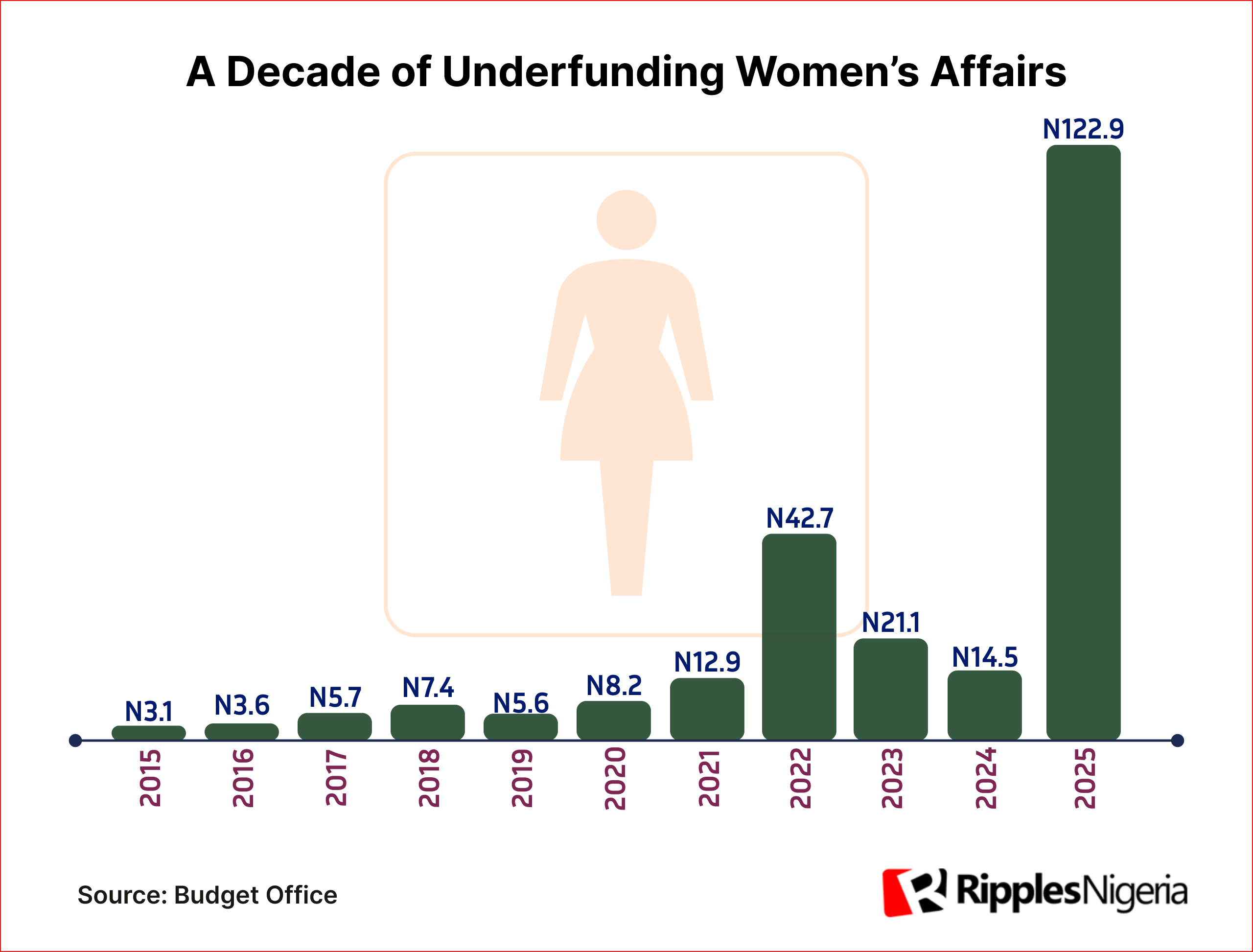Ripples Metrics
RipplesMetrics… Nigeria’s Gender Budget: A decade of underfunding Women’s Affairs

In the last ten years, the Ministry of Women’s Affairs whose mandate is to advise the government on gender and children issues have been allocated N247.63 billion between 2015 and 2025.
The data from Nigeria’s Budget Office reveals that allocations to the Ministry of Women’s Affairs have remained consistently below 1% of the annual national budget over the past decade. This poor funding highlights a persistent gap in gender-focused funding to alleviate the issues affecting women in the country.
Despite Nigeria’s commitment to gender equity and social development, the budget figures suggest that investments in policies and programs supporting women’s welfare remain a low priority. This chronic underfunding raises concerns about the government’s commitment to addressing key gender issues, including women’s economic empowerment, protection against gender-based violence, and social welfare programs.
According to the analysis by Ripples Metrics, from 2015 to 2024, the gender sector has received a minimal share of the national budget, ranging from as low as 0.05% in 2024 to a peak of 0.25% in 2022. The latest data for 2025, however, shows a notable increase of 0.22%, amounting to ₦122.9 billion.
Minimal allocations over the last ten years
Between 2015 and 2021, the gender sector’s budget share fluctuated between 0.06% and 0.10%, indicating a long-term trend of underfunding. The most significant increase occurred in 2022, when the allocation jumped to 0.25%, amounting to ₦42.7 billion. However, the percentage dropped again in 2023 and 2024, before climbing in 2025.
The naira allocation has steadily increased over the years, rising from over N3 billion in 2015 to N122 billion in 2025. However, the data reveals that the allocation decreased only twice when compared year-on-year, specifically in 2019 and 2024.
In the recently passed 2025 budget N177.17 billion was allocated for capital expenditure while N2.5 billion was for personnel cost and N3.15 for overheads.
There are concerns that the persistent lack of funding limits the effectiveness of government initiatives aimed at improving gender equality. With rising economic challenges and increased advocacy for women’s rights, stakeholders are urging the government to allocate a more substantial percentage of the national budget to gender-related programs.
Meanwhile, the sharp increase in the 2025 allocation suggests a potential shift in priorities. However, whether this translates into meaningful impact remains to be seen. Analysts warn that beyond budgetary figures, transparency and effective utilization of funds will be key in determining the success of Nigeria’s gender initiatives.
As Nigeria continues to push for inclusive growth, many hope that this increase marks the beginning of a more sustained commitment to gender-responsive budgeting.
By: James Odunayo
Join the conversation
Support Ripples Nigeria, hold up solutions journalism
Balanced, fearless journalism driven by data comes at huge financial costs.
As a media platform, we hold leadership accountable and will not trade the right to press freedom and free speech for a piece of cake.
If you like what we do, and are ready to uphold solutions journalism, kindly donate to the Ripples Nigeria cause.
Your support would help to ensure that citizens and institutions continue to have free access to credible and reliable information for societal development.




























